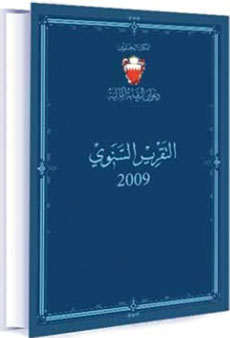
|
 |
 |
|
|
|
|
|
|
|
|
|
|
|
|
|
|
|
|
|
|
|
|
|
|
To Fight Corruption:Accountability Should Follow Reporting
Financial and administrative scrutiny is worthless if it is not followed up by accountability arrangements. Seven very transparent and detailed reports were issued by the Office of Financial and Administrative Control (OFAC), which was established in 2003. The latest report was issued in December 2010 containing shocking information on growing corruption, administrative breaches and the wasting of public money in almost all departments of the government. The publication of the report in the press and the debate that followed has undoubtedly benefited the Bahraini society. It has shown the size of corruption within the State and highlighted ways of combating this problem and the obstacles it may face. Bahrainis have often heard and read many statements condemning corruption and calling for confronting it. Almost everyone in the country agrees and without any exception on condemning the abuse of public money and calls for tougher measures to be taken against it. However, many have noticed that the breaches, which were included in the latest report, have been reoccurring and that no official body exists to deal with the current situation. The OFAC is an institution, which was established during the reform era in order to promote reform and democracy. OFAC has played a crucial role in enlightening the public about corruption issues, and has provided MPs with all the tools necessary to combat the phenomena of corruption. Hence, it is not surprising that the OFAC reports have been praised by many bodies. Top senior officials, including HM the King, the Prime Minister, the Crown Prince and other ministers have praised the report. However, a crucial question remains unanswered: what will happen after the publication of the report? And is its role only confined to monitoring and scrutinising Government? At the present the public are aware of the reality of corruption and the financial breaches in the country. The next important step involves the activation of the administrative and legislative bodies in order to combat these breaches and correct the mistakes so that they are never repeated again. Accountability and correction is the next step, but who is authorised to implement the recommendation of the OFAC? Is it the House of Representatives, where a number of its members expressed their shock over the report? Can MPs summon ministers for questioning, as some MPs suggested? Or does the solution lie in establishing another institution such as the High Authority to Combat Corruption, as some civil society institution suggested? Or could the solution be in setting up a joint committee from both the Council of Ministers and the Parliament that can follow the implementation of the OFAC recommendations and hold those responsible accountable? The above can be summarised as follows: The importance of scrutinizing and monitoring the financial breaches and administrative corruption. There is no official sensitivity regarding pin pointing and publishing the areas of fault in State institutions, as the latest report has shown. The official reaction shows that there is no problem in holding those responsible for corruption accountable. The problem lies in the absence of mechanisms that can achieve this. The considerable amount of breaches in the report shows that the Government is serious in confronting financial and administrative corruption. Many of the breaches could have been hidden as is the case in some countries. Although the size of corruption is a cause for concern, it is pleasing to see both the Government and the public are ready to take steps to combat it. The reform project brought about a chain of reforms, which are difficult to undo. Combating corruption can only be achieved by having a strong House of Representatives, anti-corruption legislations, vibrant civil society institutions and free expression. Combating corruption is an indispensible part of the political reform and the time has come to take strict measures towards implementing it. |
